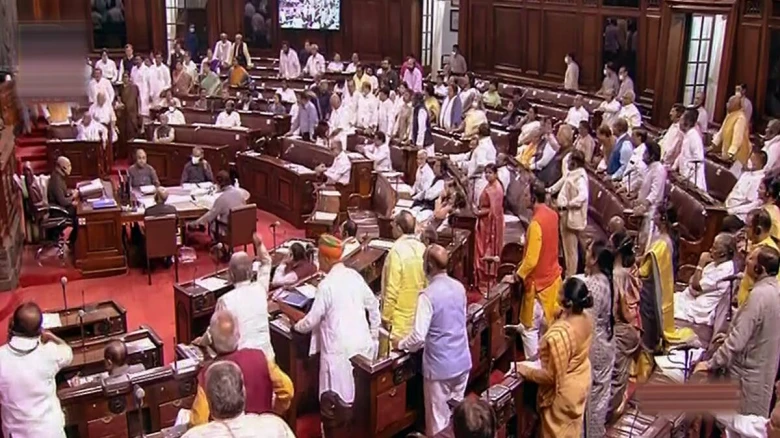North East

TMC MP Derek O Brien stated that every member has the right to free expression, subject to the Constitution and the rules of Parliament.
Digital Desk: On
Thursday, the Rajya Sabha passed the Family Courts (Amendment) Bill, which
seeks to provide statutory protection to family courts established in Himachal
Pradesh and Nagaland. The Bill was passed in the midst of opposition protests
and sloganeering over alleged abuse of central government agencies.
Deputy Chairman Harivansh
Narayan Singh denied a point of order raised by Congress MP Jairam Ramesh
during the introduction of the Bill by Union Minister for Law and Justice Kiren
Rijiju, stating that a point of order can only be raised "in relation to
the business of the House at the time."
A point of order is essentially
an objection to a House rule being broken.
TMC MP Derek O Brien
stated that every member has the right to free expression, subject to the
Constitution and the rules of Parliament. "The members have freedom of
speech," Union Minister Bhupendra Yadav responded. "There is no
freedom of 'hungama' in the Constitution."
During a debate on the
Bill, BJP MP Saroj Yadav stated that western concepts were gradually
encroaching on Indian values, particularly in family-related issues.
"We need more family courts to ensure
that matrimonial cases are resolved as quickly as possible." We must
safeguard Indian culture. Same-sex marriage is a Western concept that we
frequently hear about. "This is contrary to Indian culture," she
stated.
According to Rijiju,
there are currently 715 family courts in 26 states and union territories across
the country, including Himachal Pradesh and Nagaland, where the Bill seeks to
provide legal support to existing courts.
"Thousands of pending cases would be
affected if we did not bring legislation to extend statutory powers to three
family courts in Himachal Pradesh and two family courts in Nagaland," the
minister said.
According to the
non-profit PRS, the establishment of family courts in the two states will be
considered retrospectively valid, and all actions taken under the Act,
including the appointment of judges and orders and judgments passed by the
courts, will also be considered retrospectively valid from these dates.
The minister also stated that he has appealed
to district judges throughout the country to ensure that matrimonial disputes
are resolved as quickly as possible. "A marriage in India is about more than
just individuals; it is about communities." "Every district in the
country should have a family court," he said.
Leave A Comment